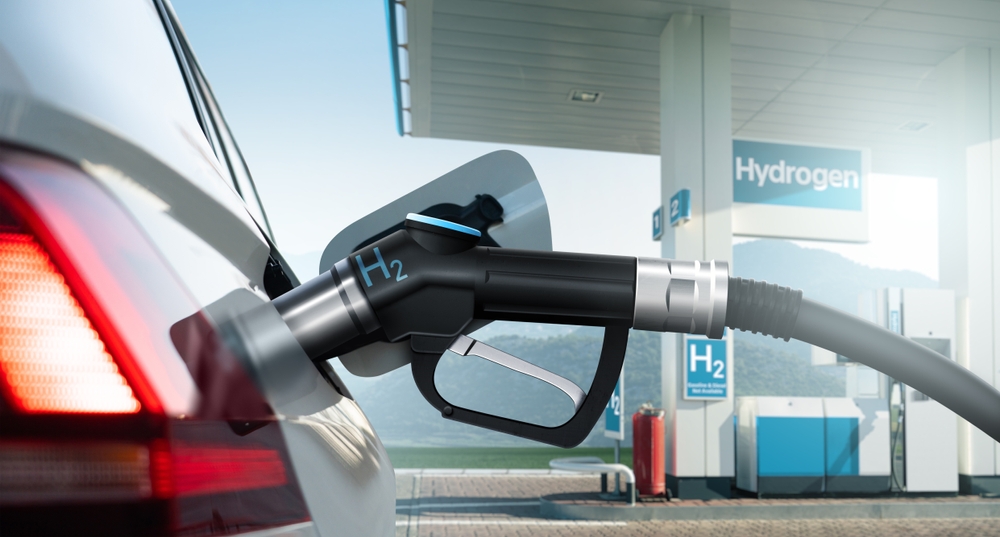EU allocates €422m to enhance alternative fuels infrastructure
Innovations and Initiatives Infrastructure and CommunicationPosted by NewAdmin on 2025-02-10 09:10:11 |
Share: Facebook | Twitter | Whatsapp | Linkedin Visits: 85

The European Commission has launched an ambitious initiative to expand alternative fuels infrastructure across the EU, investing €422 million in 39 innovative projects. This funding is part of the Alternative Fuels Infrastructure Facility (AFIF), aimed at advancing Europe’s green transport agenda by supporting the transition to zero-emission vehicles and reducing greenhouse gas emissions. The initiative underscores the EU's commitment to enhancing air quality and fostering sustainable transport solutions.
EU Commissioner for Sustainable Transport and Tourism, Apostolos Tzitzikostas, emphasized the importance of these projects in accelerating the establishment of crucial recharging and refuelling infrastructure necessary for the growing fleet of zero-emission vehicles. Collectively, these projects will create almost 5,000 new charging points, including 626 high-capacity mega-watt chargers, which will make it easier for citizens to adopt zero-emission vehicles and contribute to cleaner air.
The projects selected for funding will focus on the widespread installation of charging and refuelling infrastructure. A major portion of the funds will go toward establishing 2,500 public electric charging points for light-duty vehicles and 2,400 for heavy-duty vehicles along the Trans-European Transport Network (TEN-T). In addition, the initiative will support the construction of 35 hydrogen refuelling stations for cars, trucks, and buses, boosting hydrogen adoption as an alternative fuel.
Furthermore, the plan includes electrifying ground-handling services at eight airports, reducing emissions from airport operations, and installing onshore power systems at nine ports to allow ships to run on cleaner energy while docked. Additionally, two ammonia and methanol bunkering facilities will be developed to provide sustainable fuels for maritime transport, a critical step toward decarbonizing the shipping sector.
The investments align with broader EU goals, including energy security, industrial competitiveness, and innovation in the alternative fuels sector. The expansion of alternative fuels infrastructure is crucial to overcoming the barrier of limited fuelling and charging stations, a key challenge hindering the widespread adoption of cleaner energy solutions.
The AFIF initiative aims to drive a significant reduction in carbon emissions, helping the EU achieve its carbon neutrality target by 2050. It will also improve air quality, stimulate job creation, and foster advancements in green technology, contributing to Europe’s economic resilience. With continued funding opportunities, AFIF is paving the way for a cleaner, more sustainable transportation future in Europe.
Search
Categories
Recent News
- Bihar's Top Cop Opens Doors to Public Grievances
- Hyderabad Gears Up for Presidential Visit: Traffic Diversions Announced
- Hyderabad Expressway Gridlock: Three-Car Pile-Up Causes Chaos
- Hyderabad Gears Up: Security Measures for Presidential Visit
- Hyderabad's Rs 23 Lakh Scam: Fake Trading App Dupes Investors
- Pinkathon Hyderabad: Empowering Women, One Step at a Time
- Hyderabad's Drug Supply Chain Unravelled
- Hyderabad's New Year's Eve: Safety Meets Celebration
Popular News
- Navigating IPO Market Dynamics Amid Volatility and Regulatory Changes
- Innovative Green Practices and Environmental Initiative
- Massive Worldwide Microsoft Outage Disrupts Multiple Sectors
- తెలుగుదేశం పార్టీ - పేదరికాన్ని నిర్మూలించడంలో వాగ్దానం
- Universities Embrace Remote Learning Technologies Amidst Ongoing Pandemic